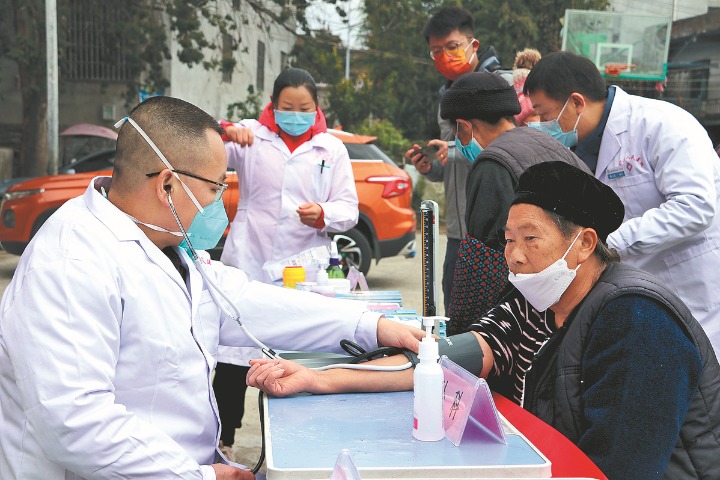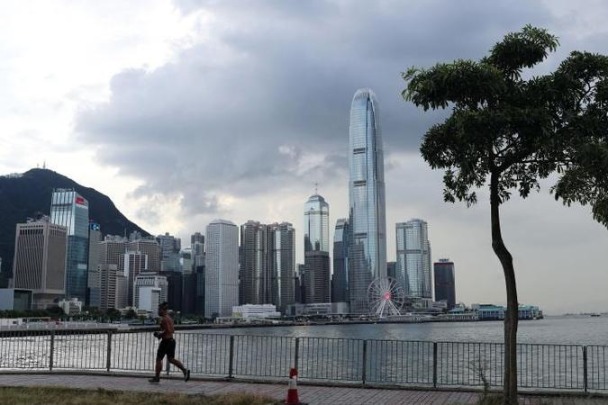Why is China able to practice closed-off community management?
It is important to note that the information provided in this Series is intended for your general knowledge only and is not a substitute for professional medical advice or treatment.

Urban communities and village communities are administratively defined units for social governance in China. Communities provide geographical space for residents’ daily activities. China adopted closed-off community management right after COVID-19 broke out. Common measures include but are not limited to minimizing entrance numbers, setting up checking points, issuing entry permits, supervising face mask wearing, enhancing health monitoring and registering personnel and vehicles passing through. At the epicenter of the outbreak in China, communities enforce social distancing and travel ban by leaving one entrance open only. Residents are completely housebound or have limited opportunities to go outdoors. In areas where the outbreak is not severe, communities reduce the number of available entrances. Residents may enter or exist only with their entry permits. Non-residents are banned from entering.
The key to preventing and controlling COVID-19 lies in communities. Adopting closed-off management appears to be a crucial method. It effectively decreases people flows, protects vulnerable populations and curbs virus spread. Daily activities of elders and children—both groups are vulnerable to COVID-19 infection due to weaker immune systems—generally happen in communities. Aside from residents, groups like couriers, postmen, and employees and customers of community shops also appear in communities every day. High crowd fluidity and density leaves communities prone to big-scale cluster outbreaks and community transmission. Closed-off management measures, especially shutting down community shops and banning non-resident entry, effectively reduces people’s gatherings and moving, thus isolating sources of infection and containing the spread of the epidemic.
China is able to practice closed-off community management for a couple of reasons.
First, communities generally occupy independent geographical space, which creates preconditions for closed-off management. Urban communities in China usually distinguish themselves from the outside with walls and fences. Village communities are naturally physically independent.
Second, China has a relatively mature grassroots social governance system at hand for epidemic prevention and control. Most Chinese communities have established grid management mechanisms. To govern local communities precisely, Street Offices, lowest-level administrative agencies of the Chinese government, hire grid masters and grid workers to closely collaborate with resident committees. Members of resident committees are elected by community residents directly or by the representatives of resident groups. Some resident committees hire building masters and unit masters who are usually older people and keen to participate in community management. Under the coordination of Street Offices, resident committees are able to engage property management companies, residents and other actors in implementing disease prevention measures.
Third, temporary work force, such as CCP members, civil servants, and volunteers from the general public, guarantees labour resources needed for closed-off community management. Civil servants and officials are drafted from various governmental level to the frontline. In Wuhan, around 36,000 CCP member and civil servants were deployed to communities for COVID-19 prevention and control. A large number of residents volunteered to participate in community work. Tasks fulfilled by temporary work force include health status monitoring, epidemiology surveys, delivery of living necessities, etc. Please refer to Question 18: What have community workers done to combat COVID-19? for detailed description of the job.
Fourth, daily life needs can be guaranteed during closed-off management. Various e-commerce platforms and shops started to provide contact-free delivery services during the outbreak. Communities have also arranged group purchases and distribution services. In cities where community-based healthcare systems were set up, prescription periods of chronic disease drugs were extended to reduce the number of hospital visits. Drugs are delivered to community-based GPs for people to collect. Question 17: How do Wuhan citizens address daily life needs? and Question 19: What roles did Chinese e-commerce platforms play in preventing and controlling COVID-19? provide further information about guaranteeing residents’ daily life needs. With the efforts of the above actors, residents are able to keep their life in order in a closed-off community.
Author: Zhu Qingyi
Please feel free to contact us by sending your questions to question@chinadaily.com.cn or commenting on China Daily app. We will ask experts to answer them.














